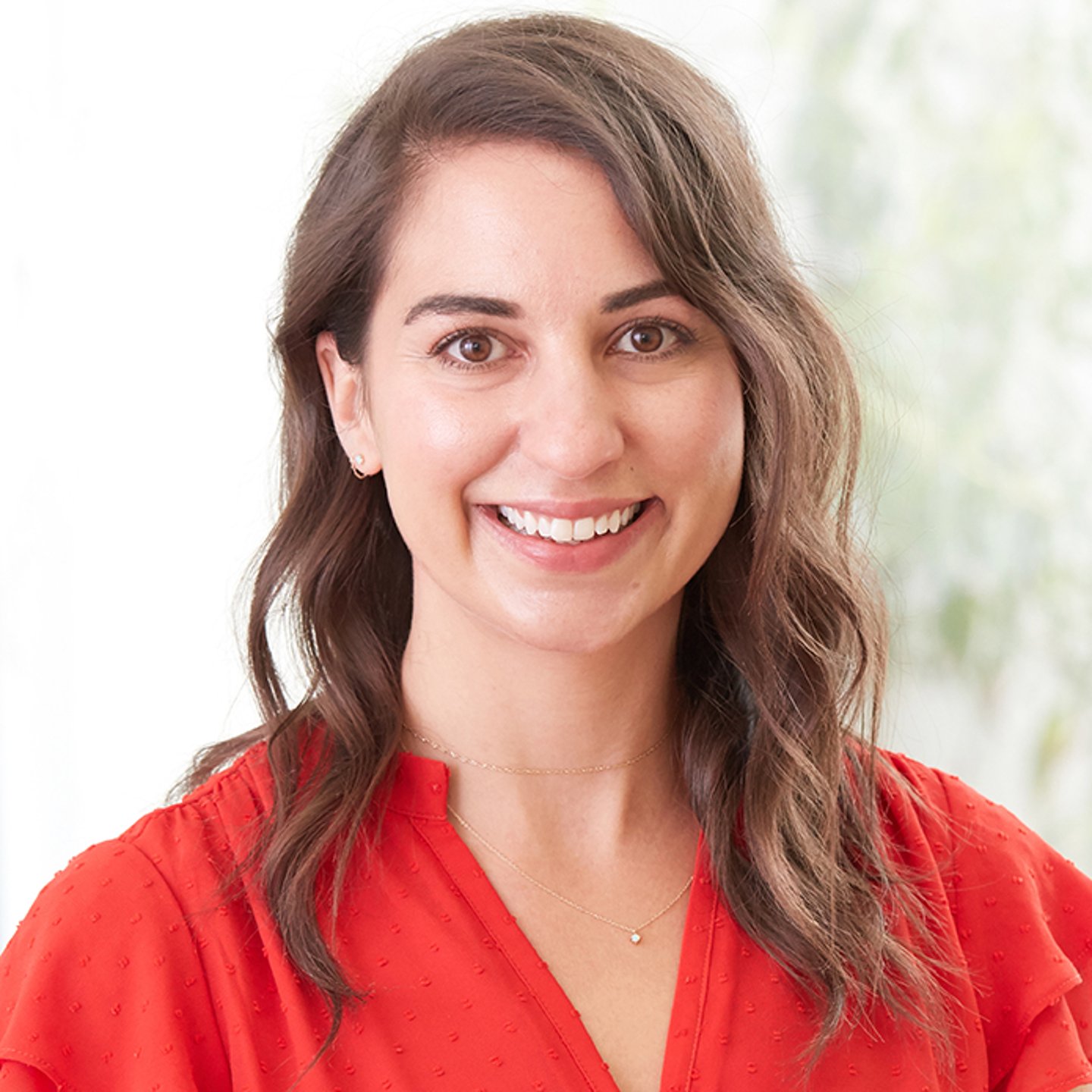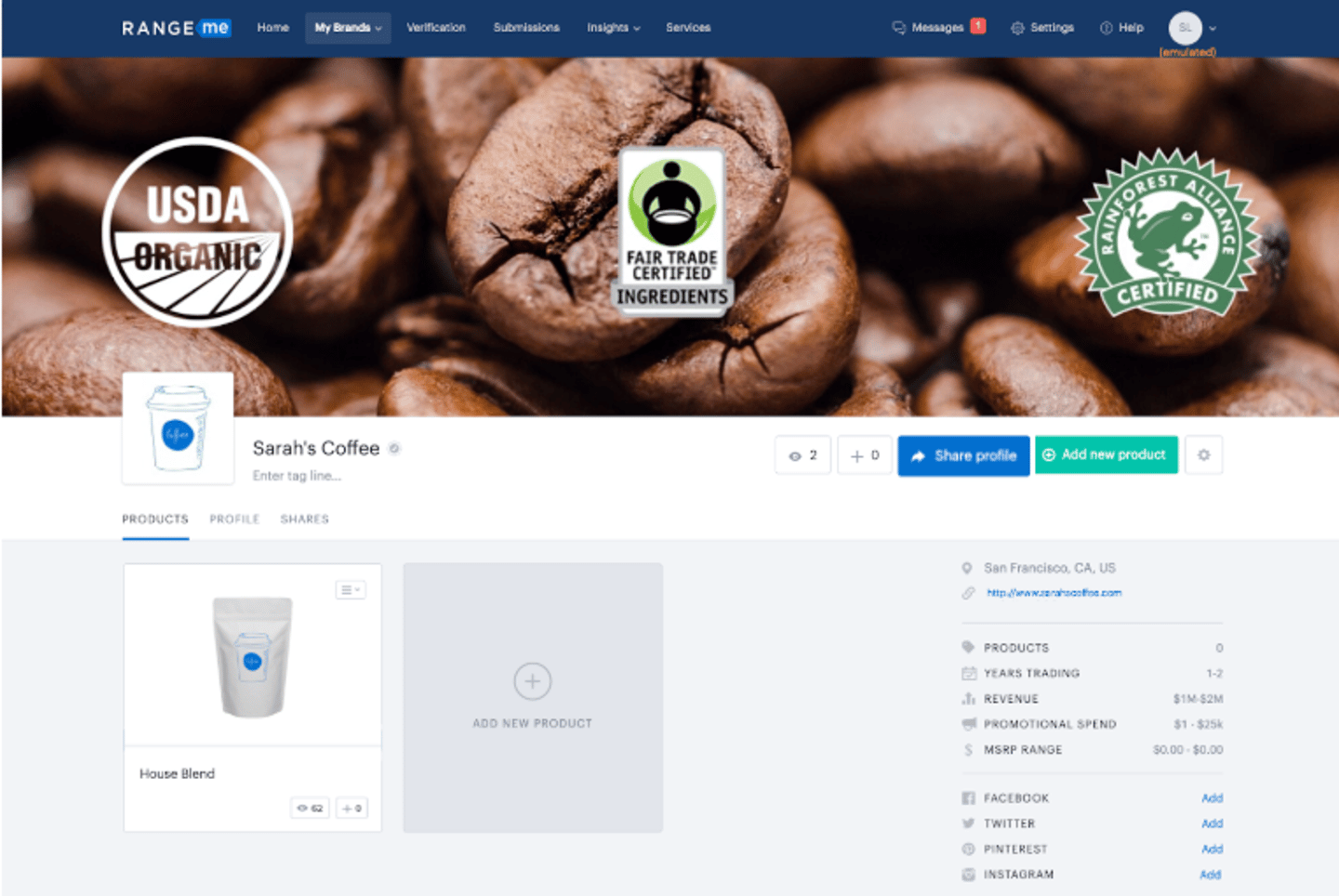Q&A: Sourcing private brands with Thrive Market
Erin Shulman is senior food product innovator at Los Angeles-based Thrive Market, sourcing the retailer’s private brand products for the five-year-old company for almost a year. She spoke to Store Brands about using the RangeMe platform to connect with suppliers, and about trends she’s got her eye on.
Store Brands: Tell us a little about Thrive Market.
Erin Shulman: Thrive is a newer company, 100% e-commerce focused. We offer a membership club for healthy living, offering access to a vetted lineup of every kind of household essential, from fair trade coffee to organic toothpaste, etc., at a guaranteed saving.
We can go direct from our supplier to our member base — our membership fee is coupled with our purely online presence — giving us great control over our supply chain and our price points. Right now, we have about 600,000 members and counting.
SB: What is your mission?
ES: It’s making sure that our product line, and our whole portfolio from branded to private label, at the entry point, is non-GMO certified and then the quality goes up from there. Every order is shipped in a carbon-neutral, 100% recyclable package, and from a zero-waste warehouse. So it’s being sustainable and offering our members a high quality product.
And, on another note, every paid membership sponsors a family, student, teacher, veteran, or first responder in need, really helping to provide access for all, one member at a time. So that's definitely one thing that I know drives me every day. Our paid members certainly support the revenue stream; however, with that, we are able to donate and be active in the community.
SB: That's awesome. What’s the ratio between branded and private brand product?
ES: To date, we've developed roughly 675 private label items, and that is across many categories, with food being No. 1. Under food, snacks are the number one subcategory. It’s amazing how the snack category just dominates.
However, as a percentage of total sales, private label is roughly 25%. It’s great to see how active private label is, and really how much it’s supported within the company. I love it. I mean, just understanding how we operate alongside the brands, it’s such a team effort, and there's so much support back and forth. It’s definitely a very positive work approach.
SB: How do you decide what new private label products get developed?
ES: We build an innovation roadmap — that includes everything from industry trends, actual member recommendations and brand trends that we're seeing — to identify if there are any gaps in our portfolio. Then we plug it in every step of the way, prioritizing a trend, flavor, format, any kind of diet that we’re seeing some traction in, and/or requests from our member base.
It’s nice to have that main line of communication with our members, because we know exactly what they want and how they want it. It helps drive specific innovation.
SB: What role do trade associations and other tools play in helping find suppliers?
ES: Since I've previously worked in private label, of course I have my own Rolodex of contacts — suppliers, brokers, my own network to lean on. However, I love PLMA. It’s a great trade show for the private label industry. Fancy Food Show. Expo West. Expo East. So really utilizing trade shows just to see what's out there, who’s out there. However, that's why I do like to use RangeMe, knowing that some suppliers aren't exhibiting a certain year or just truly can't afford it — because I understand it's very expensive to exhibit and bring your whole team out, and samples.
Since technically I am buying for a smaller retailer, it’s great to see smaller suppliers out there. Going back to PLMA, a lot of the suppliers that exhibit there, thinking about the volume game, they want the bigger tickets. They want the bigger volume. They want the full truckload. But it's nice to find the smaller suppliers, especially who are willing to be flexible with us and grow with us at the same time.
SB: And you have standards to meet so you need to find companies that fit your mission.
ES: Exactly. And speaking to that, we rarely take stock formulas just out of the box. Our member base is shopping with Thrive because they are wellness driven, or diet driven, or allergy driven. So that’s what's really neat about our site, the fact that you can search by whatever your value is, whether it’s vegan or gluten free, so we need to make sure every single ingredient that's listed is there or can be replaced with something that applies to certain diets — or it needs to be reformulated.
SB: Can you walk me through an example of how you have used RangeMe to find suppliers?
ES: When I first started at Thrive, I took over my predecessor's roadmap, and we were looking for a gluten-free pasta. We already had a chickpea program in line, so I'm looking outside the box, trying to understand other types of gluten-free flours that could be used, and I just started a discovery phase: “OK, gluten free pasta suppliers, private label suppliers, who's out there?” And then going through the whole process of elimination, I identified a great quinoa supplier.
It was great to be able to identify them on RangeMe, understand the different formats that they could pack in, because with e-commerce, we have to be cognizant of the type of packaging, whether its glass, PET, chipboard, film, understanding all of the efficiencies of e-commerce packaging. So, they showed us all the different types of packaging available.
We started the conversation, and it was actually through the RangeMe messaging tool that I met my contacts. And now it’s great. The project is launching in a couple of weeks. I'm so excited. We went through the discovery phase, innovation phase, quality testing, all of it.
SB: What trends are you looking at now?
ES: It’s really exciting to talk about, because it's something that certainly drives me in my day-to-day and keeps us motivated. It’s like we're on this treasure hunt.
But, we definitely have a huge focus to find low-carb formulas, so catering to the keto and paleo diets. We're seeing a lot of requests for grain-free formulas and sugar-free ones, using the alternative sweeteners that do exist, like monk fruit. And then on the supply chain side, we have this huge push for regenerative, organic farming practices, and essentially raw material suppliers for that.
That has been fun to learn about and to support, because these bio-diverse farming practices, it’s fascinating. And you can truly taste the difference in the products.





